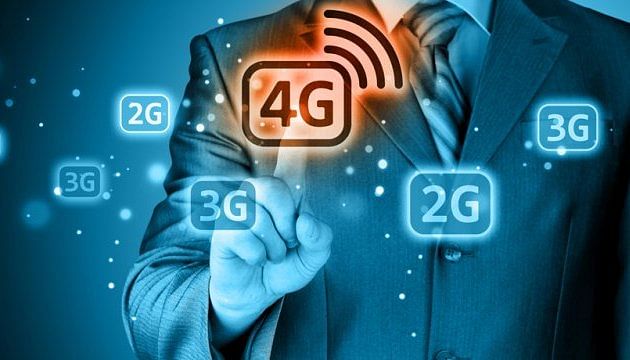The Jammu and Kashmir administration on Friday evening announced restoration of 4G internet service across all the districts after 18 months of ban, bringing respite to people immensely affected by the ban especially students, working professionals and business community.
The announcement of 4G restoration was made by spokesman of J&K government, Principal Secretary Information Rohit Kansal, who tweeted: “4G mobile internet service being restored in the entire J&K.”
Later an order was issued by the Home Department. “Now, therefore, keeping in view the advice of the Special Committee and upon careful review of the overall security scenario, I, Principal Secretary to the Home Department …..hereby revoke the restrictions on mobile data services and fixed line internet connectivity,” the order read.
In Udhampur and Ganderbal, 4G service was restored for “trial basis” since August last year but the rest of the districts have been witnessing people relying on paltry 2G service for as many as 550 days.
On August 5, 2019, the Government of India scrapped the special constitutional status of Jammu and Kashmir. Banning internet and telephones was part of a communication gag accompanied with curfew and arrests. However, while landline service was restored in a phased manner, restoration of mobile service was done a few weeks later.
2G service on mobile phones was restored across J&K in January 2020. However, the restoration was done only after earning the tag of “the longest internet shutdown in the world.”
During the 4G internet service suspension for the last several months, the government used to issue orders from time to time citing “law and order, security” as a reason for 4G suspension.
As per trade bodies, the suspension of 4G internet for the last 18 months caused huge losses to the business community while hundreds of internet-dependent businesses had either closed down operations or moved their base outside J&K.
During the complete communication gag of 2019 and later 4G suspension for 18 months, Information Technology (IT) professionals who were forced to operate from home due to the Covid-19 pandemic were also badly affected. However, the broadband and fixed line internet service offered by private telecom players had brought some relief but absence of 4G service on mobile phones was a huge lacunae for sectors such as travel, tourism, e-commerce, education, healthcare etc.
In the absence of high speed internet for the last 550 days, the student community has been the worst sufferer, with students of all age groups complaining of poor quality online classes due to 2G service. The 4G ban has forced several individuals and organisations to move petitions including the ones with the Supreme Court asking for the ban to be revoked. Apart from digital rights groups, the restoration of 4G had also been one of the main agendas of political parties in Jammu and Kashmir.
On Friday evening, as soon the news regarding 4G restoration became public, the social media was abuzz with comments regarding the revocation of the ban.
The Twitter handle of office of the Lieutenant Governor Manoj Sinha posted a Tweet which read: “I thank the Hon’ble PM @narendramodi Ji and HM @AmitShah Ji for acceding to our request and restoring 4G services in the entire J&K UT. The move will fulfil the aspirations of the people, particularly the youth.”
Former Chief Minister and National Conference vice-president Omar Abdullah also took to Twitter and wrote: “4G Mubarak! For the first time since Aug 2019 all of J&K will have 4G mobile data. Better late than never”. In a statement, JK Apni Party President Syed Altaf Bukhari said he was “glad that 4G was restored”.
Similarly, students and IT professionals also welcomed restoration of 4G service. “This is good news for students and working professionals but we are hopeful that frequent internet shutdowns are no more a norm in Kashmir,” said Yafer Nazir, an IT professional.
The Valley had earlier witnessed a communication gag in 2016 during the summer unrest when mobile calling was barred for several months. The telecom subscribers in 2016 and during the recent 4G ban have decried being “charged by companies for 4G service without providing it.”
Frequent suspension of Internet and mobile services in the Valley by the authorities during last several years has caused a body-blow to Kashmir’s economy resulting in losses worth almost Rs 4000 crore between 2012 to 2017, says a study conducted by Delhi-based think-tank International Council for Research on International Economic Relations (ICRIER).
The study: “The anatomy of an Internet blackout: Measuring the economic impact of internet shutdowns in India” says most adversely affected sectors by the Internet and mobile service shutdowns are e-commerce and general trade. It says tourism, IT services, press and news media, banking, education, healthcare, manufacturing and heavy industries have also been hit by internet shutdowns.
In order to regulate the mobile and internet shutdowns, Central government in September 2017 came up with rules to legislate the authority required and procedures to be followed to “temporarily suspend telecom services” in case of “public emergency or public safety”. Issued by the Ministry of Communications under the Indian Telegraph Act, 1885, these rules were codified as the Temporary Suspension of Telecom Services (Public Emergency or Public Safety) Rules, 2017. These rules confer the status of competent authority on the Union home secretary when the order is issued by the government of India. For a state government, the power lies with the state home secretary. In “unavoidable circumstances”, though, orders could be issued by an officer “not below the rank of a joint secretary to the government of India, who has been duly authorised by the Union home secretary or the state home secretary.”






